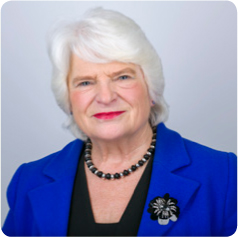
The Advertising Standards Authority (ASA) and Joint Council for Cosmetic Practitioners (JCCP) have taken action against misleading advertisements by training providers in the aesthetics industry.
The first principle in the ASA and JCCP's Advertising Guidance (2019a) is that ‘Marketing communications must be prepared with a sense of responsibility to consumers and society.’
Yet, irresponsible advertising is commonplace. The JCCP has witnessed a number of cosmetic training marketing advertisements that have been published in industry publications and online from many (unregistered) training providers who make claims about their courses being accredited or their qualifications being recognised. Many appear to be aimed at attracting fee-paying students from among prospective or existing practitioners, some of whom have either no background in the sector or possess inappropriate or low-level qualifications. The false promise is that the advertiser can qualify them to deliver highly profitable procedures when this could not possibly be achievable within the Cosmetic Practice Standards Authority (CPSA) Standards. The JCCP has also discovered inflated statements of the providers' educational status are used to reinforce this attraction (it is currently popular to add “Uni” to the providers' name), as are exaggerated claims for the authenticity of certificates issued.
Breaching the code
Recently, the JCCP brought three complaints of advertising malpractice to the attention of the ASA. The ASA reported that the points raised across each of the three complaints were considered prima facie breaches of their published code. The ASA contacted the advertisers and a detailed assessment of each response was made. All three advertisements were confirmed to have breached the Non-broadcast Advertising, Sales Promotion and Direct Marketing (CAP) Code (Edition 12) rules 3.1 and 3.3 (misleading advertising) (ASA, 2019b; ASA, 2019c; ASA 2019d). All three companies have been told that their advert must not appear again in the form complained of.
Miles Lockwood, Director of Complaints and Investigations at the ASA, said,
‘These rulings set a key precedent for us in taking action against advertisers in this sector. It's important to ensure that aesthetics practitioners are being upfront and not making misleading claims about the training they provide. I am sure that you will agree that the aesthetics sector has much to be proud of, but accurate advertising should be promoted at all times in the interest of both patient safety and practitioner fairness.’ (JCCP, 2019) The JCCP has also contacted five other training organisations regarding breaches of the Guidelines, which it will report to the ASA as the principles are the same.
It should be noted that standards for advertising are set by the ASA, and the JCCP has a Memorandum of Understanding framework with the ASA to ensure industry-specific rules.
The JCCP has established the JCCP Register of Education and Training Providers with high entry requirements, utilising the CPSA standards and competences, which includes responsible marketing.
Advertising in the cosmetic training sector
The JCCP and ASA have set down a specific set of threshold standards and tests to determine whether training companies are accurate and truthful (and, thus, responsible) in their advertising. The JCCP will continue to use this standard to determine whether an actual breach of honesty or misleading advertising has occurred before a complaint is lodged with the ASA.
Potential students should be able to clearly understand what is being offered in terms of:
Students should also understand the full cost of the course and where learning will take place.
Only universities or FE colleges with awarding powers or awarding organisations approved by Ofqual or similar bodies can legitimately provide academic accreditation.
Many courses incorrectly use the term “accredited” or “approved” in their marketing information when this is not the case. Academically accredited courses will have been reviewed and quality assured by a university, college or awarding organisation to have sufficient duration and depth to enable practitioners to develop the knowledge, skills and values required for safe practice. An academically accredited programme will also include an assessment of the practitioner to judge their knowledge and skills. Often, courses (particularly short-term ones) do not include any formal assessment of knowledge and skills, and purely certify the person has attended (but may not have developed the required knowledge and skills) This means there is no independent quality assurance of the content, level or appropriateness of the course.

Short training courses, Level 7 and entry level
Dermal fillers and botulinum toxin are regarded to be higher risk treatments, and the JCCP's Standards and Competency Frameworks outline the required level of knowledge and skills required to provide such treatments safely. They are both identified at postgraduate level (Level 7) due to the required underpinning knowledge, the need for the practitioner to assess the patients' needs, any contraindications to treatment and ensure informed consent to treatment. Practitioners must then critically evaluate and select appropriate products from those available, administer them safely using correct techniques, recognise complications and adverse incidents and intervene promptly with corrective treatment as required, which may require the prescribing and use of prescription-only medicines, hence the postgraduate level.
While this is not a requirement in statute, it reflects other similar high-risk medical procedures which require a registered professional to undertake them to protect the public. The level has also been supported by the CPSA and the Department of Health and Social Care (DHSC).
Although the JCCP do not specify a length of course or specific number of credits required for treatments, such as fillers and toxins, it requires evidence that practitioners have undertaken substantial study, which cannot be achieved by attending short courses of 2–3 days. JCCP-approved education and training programmes for toxins and fillers are often provided over a year (part-time), rather than over days.
In terms of level, a postgraduate qualification acknowledges and builds upon the knowledge and skills an experienced graduate practitioner has already acquired and developed. A degree (or the equivalent of Level 6 study) includes study at Levels 4, 5 and 6, and develops the relevant knowledge base, critical thinking and decision-making skills required to practice autonomously (without direct supervision). Therefore, it is the appropriate preparation route for practitioners, whatever their background, who wish to learn how to provide higher risk treatments. As such, it is not appropriate for someone with a Level 3 qualification to enter directly into a Level 7 programme, as they will not have the required entry level knowledge, or academic skills to undertake a postgraduate qualification. However, currently, there are degree pathways being developed to enable practitioners at Level 3 to progress in their learning and career.
Short courses which state they are accredited for continuing professional development (CPD) and offer CPD points have usually been assessed in terms of content. However, they are intended purely to update practitioners who are already qualified in a specific field and are not suitable to prepare novices to a field of practice, even if they are a registered professional.
It is worth noting that Level 6 was never a qualification, but was set down for the purpose of progression to Level 7. While Level 7 is not mandatory, it is indicative of the appropriate standard agreed with DHSC, and, as such, puts some adverts in perspective, particularly those suggesting Level 3.


